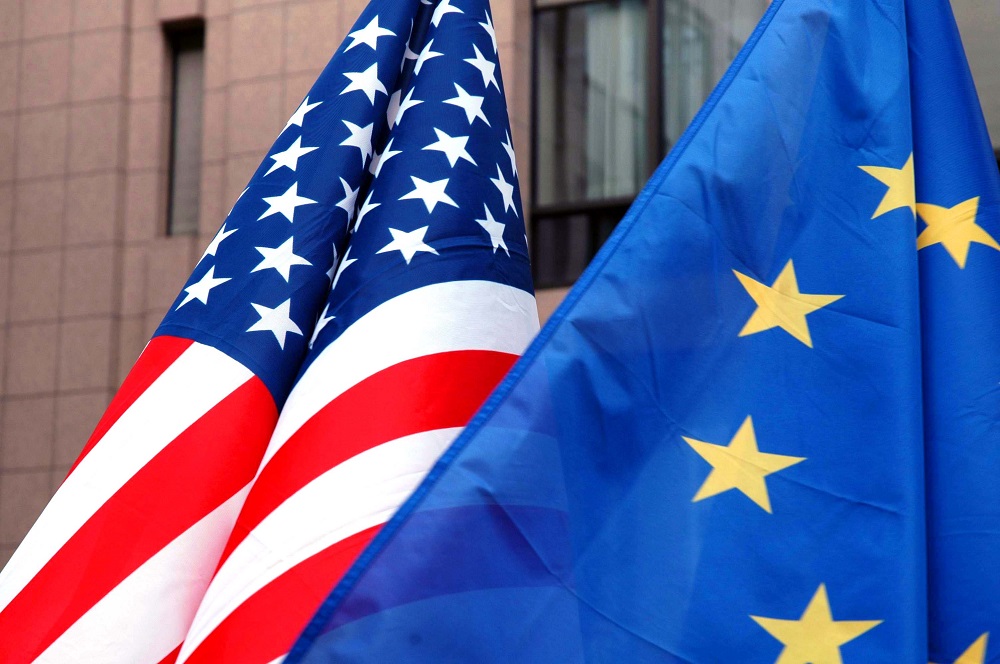The divided liberal democracies are losing the tech race, and the rise of autocratic China is giving birth to a potential technological threat. Martijn Rasser, Senior Fellow in the Technology and National Security Program at the Center for a New American Security (CNAS), makes the case for a transatlantic tech cooperation rooted in Western values
Today, technology policy coordination is largely ad hoc, stovepiped, and disjointed, and this leads to some inefficiencies that are rooted in an underappreciation of how intricately linked the technology futures of the world’s liberal democracies are. No one country can achieve the desired capabilities across the spectrum of technology areas — quantum computing, biotechnology, AI, robotics, and wireless telecommunications foremost — on its own.
Better cooperation among democratic technology leaders is needed to set the norms and standards for how technology is used. Emerging capabilities in fields like AI-enabled surveillance enable autocratic regimes in China, Russia, North Korea, Venezuela, and elsewhere to control and suppress their populations more effectively.
The proliferation of such technologies erodes fragile democratic institutions in middle powers and developing countries around the world. Tech-leading democracies should also set the example at home by working together to build the legal and ethical frameworks for how such technologies are used in their respective countries.
No existing multilateral grouping is equipped to navigate the complex waters of the development, use, and diffusion of the technologies that will be central to the 21stCentury great power competition. China is investing ever more to achieve breakthroughs in areas such as AI, genomics, quantum computing, and telecommunications—the technologies on which the 21st century economy will be centered. China will be poised to reap the economic benefits and the accompanying geopolitical clout that prowess confers.
Having China’s government dictate the terms of the global economy is in no one’s interest but Beijing’s. It would erode the economic and national security of most countries. The world’s technology-leading liberal democracies—ten countries and the European Union—should join forces to create a collective foundation where each country can collaborate and compete.
While China’s rise as a technology power is certainly a factor for the need of a technology alliance, the overarching purpose of this proposed grouping should not be taking reactive measures to put China down. Rather, the main focus should be proactive: sensible measures to boost competitiveness, productivity, and innovation to build a beneficial technology future that is rooted in free and open markets and comports with liberal-democratic values.
The pandemic crisis presents opportunity and urgency to act. Technology policy coordination will be essential to help overcome the fissures developing between leading democracies on protectionism. A common reaction to the fallout of the Covid-19 pandemic has been to call for a retreat from globalization by “onshoring” or “reshoring” supply chains to various countries. Furthermore, Beijing often threatens to weaponize economic interdependence, however, total decoupling or complete reshoring are counterproductive, impractical, and ultimately unfeasible. Autarchy and isolationism are not elements of a strategy for crafting a beneficial technology future.
As standards-setting bodies, authoritarian states work with their innovation bases to pose standards contrary to democratic values. The viability of a technology alliance rests squarely on a shared desire for multilateral cooperation and strong agreement on what areas of technology policy are most important to tackle. We determined that not only is the requisite interest there, but there is also a remarkable alignment on what the initial technology policy priorities should be.
To be effective, however, all core members must agree to specific courses of action to achieve clearly defined strategic outcomes. Among the other issues, technology alliance members could take steps to create a community where the same level of protection: protecting technologies and know-how from theft, usurpation, and misuse is foundational to safeguarding economic and national security.
This article appeared in Formiche #164








